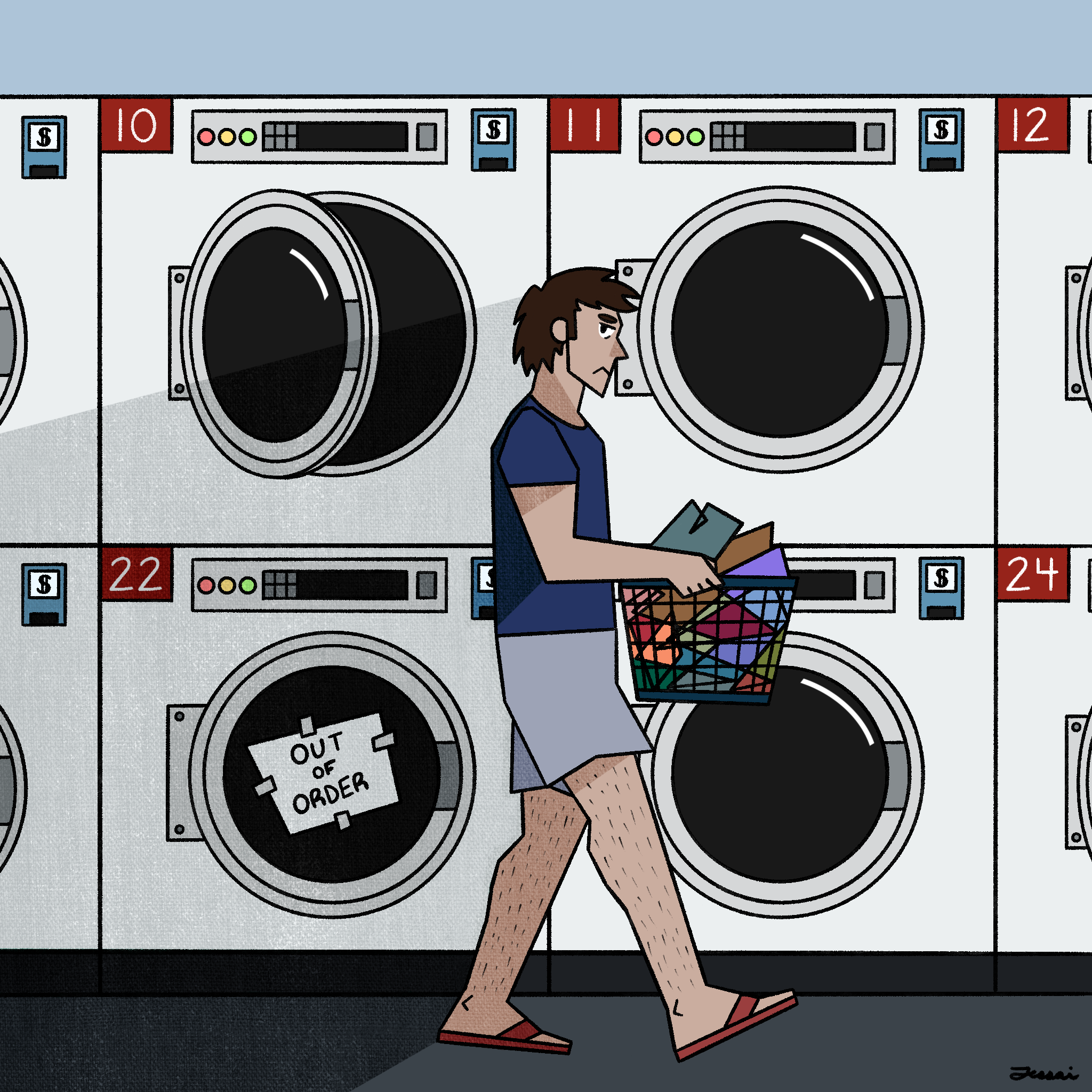
Jessai Flores
I write today regarding the infection rampantly spreading across our campus: the use of E&R Laundry Service.
I support capitalist greed as much as any of my fellow patriots. In fact, I profess great admiration for those crafty, crafty entrepreneurs who found a business opportunity in exploiting the laziness of the Yale student body and the deep pockets of their parents. But, upon different grounds, I must assert myself as a conscientious objector to this outrageous practice. Allow me to enumerate my grievances below:
1) Using E&R Campus Laundry — to be referred to henceforth as E&R— is distinctly un-American. It robs students of the opportunity to learn how to be a rugged individualist, to pull themselves up by their bootstraps, to be strong and independent like the antebellum yeoman farmer. You don’t know how tough you are until you’re out of clothes and only a trip to a dank basement can save you.
Doing your own laundry tests your grit. It tests your strength. It tests how willing you are to wear dirty underwear inside-out.
You learn things when you have to do your own laundry, like how to wear your underwear inside-out. It teaches you the difference between what you need and what you want. When you first say to yourself, “I need to do laundry today,” that’s a lie. But when it’s been piling up in your room for a week, your drawers are empty, your roommate’s complaining about the stench, that’s when you need to do laundry, and not a moment before.
2) E&R deprives us of friendship opportunities. As the old adage says, “a moment in the laundry room is worth an eternity on the outside.” As you awkwardly maneuver around those crowded machines, inhaling the potent smell of detergent, you can’t help but share a magical moment of eye contact with your comrades in laundering.
Once that connection is made, conversation follows as surely as CompSci breaks a student’s love for learning. You give them a nod and start talking. They take out their headphones. “Laundry day?” you ask. “Yup,” they respond. You nod at each other, and return to your respective tasks. That indeed is true friendship.
3) Being a college student means that it’s time for all of us to take on more personal accountability. We must learn to become masters of the self, doers of our own laundry. Those meddlesome folks at E&R ought to preserve a neutral stance in the matter.
An E&R user — or should I say enabler — tried to explain to me that they used money that they earned with their own two hands to pay for the laundry service, and, ergo, they were personally getting their laundry done. Bah humbug! Such foolishness scarcely even warrants a response, but nonetheless, I shall grant it one.
When I lose my socks on a laundry trip, I know who’s to blame. Far too often have I heard an E&R subscriber lament the loss of their favorite t-shirt, or a slow turnaround on the week’s batch of clothes. But when you sell your soul to E&R, that is part of the price you pay.
4) The little moments — the ones that words can never truly capture — mean even more than the big ideas; they are what make the laundry experience so special:
You bang your head on the low basement ceiling and say “ouch” out loud while someone smirks from the side … You see your laundry aggressively dumped on the floor because you didn’t take it out within five minutes of the timer going off … You leave a passive-aggressive note to someone who didn’t take their laundry out within five minutes of the timer going off, and then you dump their clothes on the floor … or you see a used condom lying on the floor before chuckling and giving it a knowing smile.
5) But perhaps one triumph stands above the rest: few things rival the superiority complex you get from walking into the laundry room and seeing the bags of the E&R users. Oh, they’ll try to justify themselves. They’ll tell you that they feel smarter, more efficient, like key cogs in the capitalist machine.
You and I, my fellow brothers, sisters, and siblings in laundry, we know the importance of a little elbow grease. We know the satisfaction of sticking our head into the dryer and just basking in the warmth radiating from our clean clothes — I’ve been told other people don’t do this, but they should. And most importantly, we know that they don’t even know the half of what they’re missing out on.
Laundry is about so much more than cleaning clothes. It’s about a principle, a principle that used to mean something: a principle of hard work, of community, of love. Pay someone to do my laundry? Absurd. You couldn’t pay me enough to surrender the privilege, the joy, and the swell of patriotic fervor that I derive from every laundry room trip.







